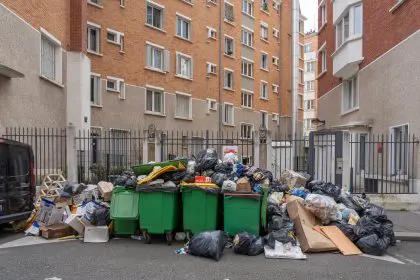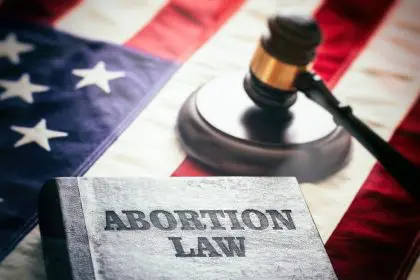In recent years, the unsettling rise in political violence has taken a toll on public officials, particularly those representing historically marginalized communities. The story of Michigan legislator Sarah Anthony in 2020, who required an armed escort of Black community members to walk into work, highlighted the increasing hostility. This backdrop offers context for a more recent and alarming incident involving a Black state lawmaker in Harlem.
On Nov. 18, a man entered the office of New York State Senator Cordell Cleare and allegedly threatened to “bomb the place” if denied a meeting with her. His actions, though shocking, are part of a broader trend that has raised urgent concerns about the safety of elected officials and the state of democratic discourse.
A frightening confrontation
The incident unfolded at the Adam Clayton Powell Jr. State Office Building in Harlem, where Senator Cleare conducts her legislative duties. The individual, identified as 42-year-old Vadim Dergachev, reportedly stormed into the office, demanding to see the senator. His threats included shooting and bombing the premises. Though Senator Cleare was not present at the time, her staff experienced palpable fear during the ordeal.
Authorities arrested Dergachev and charged him with terroristic threats, menacing in the third degree and harassment in the second degree. While unarmed at the time, his aggressive behavior raised serious questions about the security measures in place to protect public servants.
The weight of words
This act of intimidation brings to mind a chilling moment in Michigan during the spring of 2020. As armed white protesters protested Lansing, Michigan’s state capitol because they were outraged over pandemic restrictions, Sarah Anthony — a Black legislator — took precautions few others would need to consider. She was escorted to work by Black men and women carrying firearms to ensure her safety.
That episode laid bare a troubling reality: the intersections of race, gender, power and violence create unique threats for Black public figures, especially female ones. While some viewed Anthony’s move as bold, others saw it as an unavoidable reaction to a system failing to protect its own lawmakers.
Cleare’s experience in Harlem carries similar undertones. Although the threats were verbal and the individual unarmed, the fear invoked cannot be dismissed. In an era where rhetoric often precedes action, these incidents highlight the precarity of holding public office as a Black representative.
The role of political climate
The rhetoric during Dergachev’s outburst suggests a deeper issue. According to the Atlanta Black Star, he referenced the political landscape, including disparaging remarks about President Joe Biden and Vice President Kamala Harris while invoking Donald Trump’s presidency. His words reflect a polarization that has escalated into hostility in many spheres of public life.
The connection between words and action is not theoretical. From the January 6 Capitol attack to the harassment of local officials over policies ranging from public health to education, the tone of political discourse has increasingly taken on a dangerous edge.
Parallels and patterns
Comparisons to Anthony’s experience in Michigan extend beyond the racial undertones. Both incidents reveal a critical vulnerability in the system: the inability to prevent threats against public servants until after they occur. Anthony’s armed escort made visible the layers of defense Black lawmakers must sometimes create to navigate spaces where they should feel secure.
Similarly, the situation with Cleare highlights how volatile interactions can unfold even in professional settings. For many, the issue lies not just in the incidents themselves but in the lack of systemic safeguards to prevent them.
The need for proactive security
In response to the threats made in Harlem, security personnel quickly evacuated the office and apprehended Dergachev. While the swift action ensured no physical harm, the psychological toll on Cleare’s staff cannot be underestimated.
This incident underscores the importance of comprehensive security measures for all public officials, particularly those who face heightened risks due to their identities or the communities they serve. From increased building security to more robust protocols for handling visitors, these measures must be tailored to meet evolving threats.
Building a culture of respect
Beyond immediate security concerns, the broader question remains: how do we address the cultural and political dynamics that give rise to such hostility? As Anthony’s armed escort demonstrated, the onus often falls on marginalized communities to defend themselves against a system ill-equipped to do so.
Communities can play a crucial role in rejecting violence and fostering dialogue. In Michigan, Anthony’s armed supporters symbolized both protection and empowerment — a reminder that collective action can fill the gaps left by institutional failures. Similarly, those rallying behind Senator Cleare can channel their energy into advocating for systemic change, ensuring that no lawmaker feels unsafe in their workplace.
A call to action
While incidents like these are unsettling, they can also serve as turning points. The threats against Senator Cleare highlight the urgent need for reforms that prioritize the safety of public officials and address the toxic polarization in political discourse.
For citizens, the path forward lies in rejecting violence as a tool for resolving differences and demanding accountability from leaders who enable divisive rhetoric. By fostering a culture of respect and understanding, we can begin to rebuild trust in democratic processes and create an environment where all public servants feel safe to do their work.
Anthony’s experience in Michigan and Cleare’s ordeal in Harlem may seem worlds apart, but they share a common thread: the resilience of Black leaders in the face of intimidation. These stories remind us of the ongoing struggle to create a society where justice and security are not privileges but rights for all.
Through collective effort and unwavering resolve, communities can turn these moments of crisis into opportunities for growth, ensuring a safer and more inclusive future for generations to come.

















